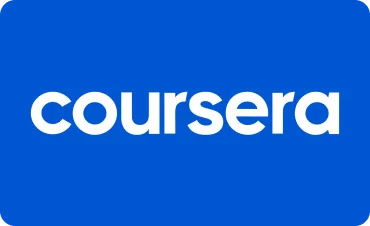When you enroll through our links, we may earn a small commission—at no extra cost to you. This helps keep our platform free and inspires us to add more value.

Machine Learning: Concepts and Applications
Master the Skills of Tomorrow with Coursera! From AI and Blockchain to Public Speaking and Psychology, Explore Courses Tailored for Your Success.

This Course Includes
 coursera
coursera 3.8 (19 reviews )
3.8 (19 reviews ) 37 hours
37 hours  english
english Online - Self Paced
Online - Self Paced course
course The University of Chicago
The University of Chicago
About Machine Learning: Concepts and Applications
This course gives you a comprehensive introduction to both the theory and practice of machine learning. You will learn to use Python along with industry-standard libraries and tools, including Pandas, Scikit-learn, and Tensorflow, to ingest, explore, and prepare data for modeling and then train and evaluate models using a wide variety of techniques. Those techniques include linear regression with ordinary least squares, logistic regression, support vector machines, decision trees and ensembles, clustering, principal component analysis, hidden Markov models, and deep learning. A key feature of this course is that you not only learn how to apply these techniques, you also learn the conceptual basis underlying them so that you understand how they work, why you are doing what you are doing, and what your results mean. The course also features real-world datasets, drawn primarily from the realm of public policy. It is based on an introductory machine learning course offered to graduate students at the University of Chicago and will serve as a strong foundation for deeper and more specialized study.
What You Will Learn?
- Machine Learning and the Machine Learning Pipeline Least Squares and Maximum Likelihood Estimation Basis Functions and Regularization Model Selection and Logistic Regression More Classifiers: SVMs and Naive Bayes Tree-Based Models, Ensemble Methods, and Evaluation Clustering Methods Dimensionality Reduction and Temporal Models Deep Learning.